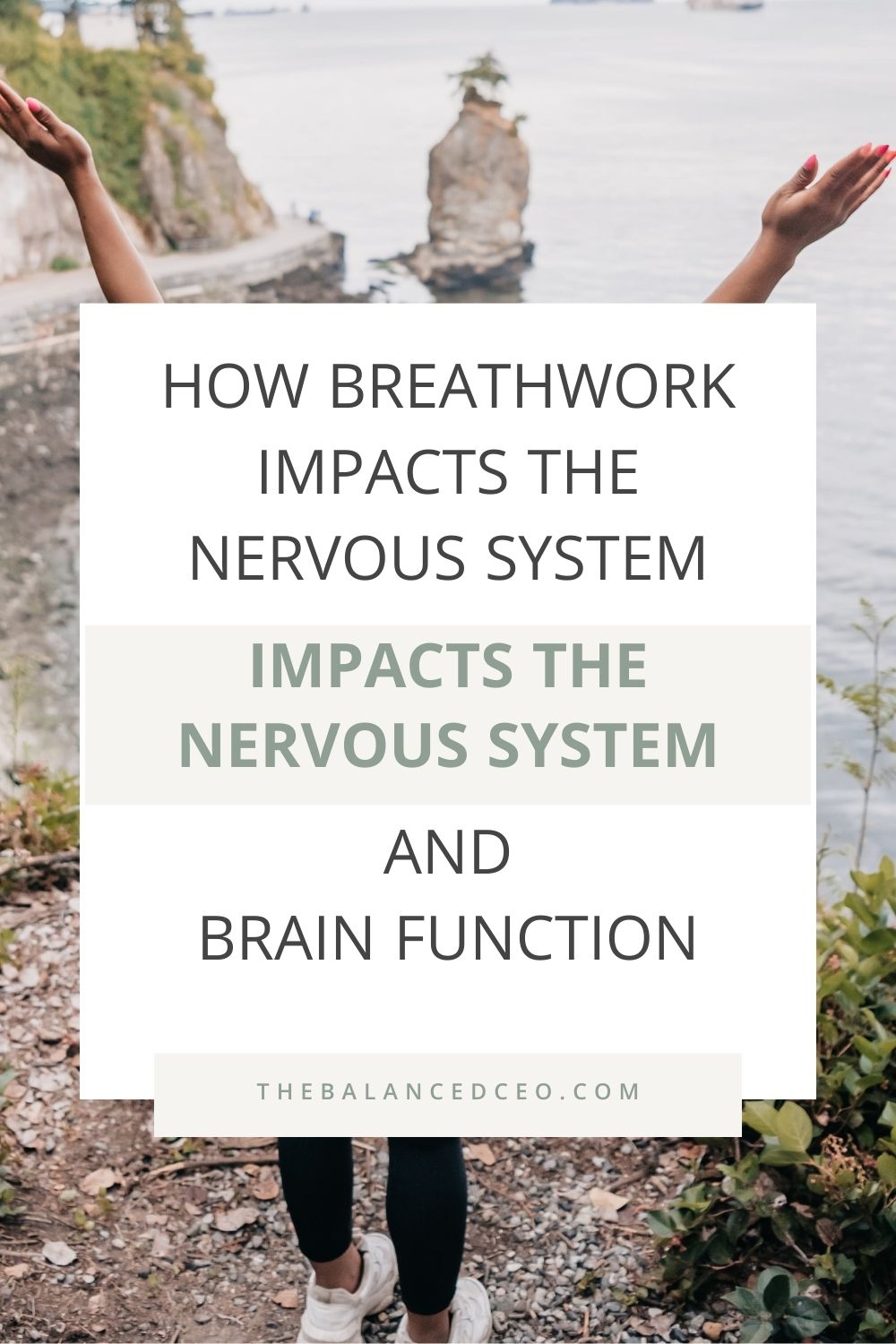This post may contain affiliate links, which means I’ll receive a commission if you purchase through my links, at no extra cost to you. Please read full disclosure for more information.

In recent times, Breathwork has emerged as a holistic practice because of its positive impact on emotional and physical well-being. In ancient Eastern traditions, especially, meditation practices, the act of breathing has become significant to attain a deeper meditative state. Since more and more people are moving towards practicing meditation, they are realizing the positive effects of breathwork and how it modulates the Autonomic Nervous System.,
Research suggests that regular breathwork practice may contribute to long-term improvements in mood, resilience, and overall emotional health. These days, breathwork coaches work closely with individuals to customize practices that address specific emotional needs and foster mental resilience.
The Autonomic Nervous System (ANS)
The ANS is responsible for regulating respiratory rate, heart rate, digestion, and more. It includes two branches, the Sympathetic Nervous System and the Parasympathetic Nervous System. According to the research, the various types of breathwork influence these branches in significant ways to help bring positive changes to the psychological as well as physiological states.
Breathing’s Influence on Sympathetic and Parasympathetic Balance:
Slow and Deep Breathing
Intentional or controlled slow and deep breathing exercises triggers the diaphragm and stimulates the parasympathetic nervous system. This initiates a relaxation response that reduces stress and induces a calming effect on the body. Some of the benefits associated with slow and deep breathing include – emotional regulation, better sleep quality, improved respiratory function, and stress reduction.
Quick and Shallow Breathing
Quick and shallow breathing activates the sympathetic nervous system, preparing the body for a rapid response to a perceived threat.
Quick and shallow breathing involves taking rapid, superficial breaths without fully engaging the diaphragm. It activates the sympathetic nervous system and prepares the body for a rapid response to a perceived threat. Bhastrika and Kapalbhati are two of the quick and shallow breathing techniques t to activate the sympathetic nervous system.
In addition, shallow and fast breathing can help in improving focus and alertness by providing more oxygen to the brain. This breathwork can temporarily boost alertness and mental focus. The increased oxygen flow to the brain may heighten cognitive functions, helping individuals respond swiftly to challenges. When faced with sleepiness, lack of focus and concentration, quick and shallow breathing can play a great role in keeping the individual alert and focused.
Breathing’s Influence on Heart Rate Variability (HRV):
Balanced Breathing and HRV: Techniques like coherent or balanced breathing, where inhalation and exhalation durations are equal, can enhance heart rate variability (HRV). Higher HRV is generally associated with better adaptability to stress and improved overall health.
Breathing Influence on Vagus Nerve Stimulation:
Diaphragmatic Breathing: The diaphragm is a major muscle involved in breathing, connected to the vagus nerve. When deep diaphragmatic breathwork is practiced, it stimulates the vagus nerve, promoting parasympathetic activity and reducing the stress response.
A Certified breathwork coach provides the individuals with techniques that target vagal tone, helping them positively impact their emotional and psychological well-being.
Breathing Influence on Relaxation and Oxygenation
With slow and controlled breathing, the body gets relaxed while promoting a sense of calm because it induces enough oxygen in the blood. This further helps in improving cognitive function, memory, and enhanced attention. With a certified breathing coach, individuals get educated on how to control breath appropriately to get maximum cognitive benefits.
Breathing Influence on Cortisol Regulation:
Cortisol is one of the primary stress hormones released in response to perceived threats or stressors. Deep, rhythmic breathing has been associated with a reduction in cortisol levels. As the body relaxes, the need for stress hormones decreases, contributing to a decline in cortisol production.
Some of the breathing techniques that help with Cortisol Regulation are Deep Belly Breathing, Nadi Shodhana ( Alternate Nostril Breathing) Box Breathing, and Extended Exhalation breathing.
In the research article of Plos One, the researchers conducted a study for seven days on 16 participants with a breathwork facilitator to understand how breathing regularly at 0.1 HZ can influence hyperventilation symptoms and arterial CO2 homeostasis. The expectation of the researchers after the study was to see reduction in the symptoms of hyperventilation and an increase affective effects of paced breathing.
Conclusion
Studying breathwork scientifically shows how it affects our body and mind. Understanding how breathwork influences different parts of our body, like the nervous system, heart rate, and brain waves, gives us a strong base to use breathwork for our overall health. As scientists keep learning more about these connections, we see that breathwork could be used in healthcare more widely. It might become a big part of managing stress, improving mental health, and overall wellness. This suggests that in the future, people might use their breath to make their minds and bodies stronger. Exploring the science of breathwork not only connects us to ancient practices but also shows us how it could shape the future of holistic well-being.
Niraj Naik
Guest Blogger
Niraj Naik is an ex-pharmacist turned holistic health expert and founder of international school of breathwork Soma Breath. After working for several years as a community pharmacist, Niraj saw firsthand just how ineffective and even damaging pharmaceutical drugs can be. When he found himself a patient of stress-related depression and ulcerative colitis, he embarked on a journey of profound self-healing and education. Known internationally as the Renegade Pharmacist, Niraj is dedicated to educating others on topics of holistic health, breathwork, meditation, and more.





Leave a Reply